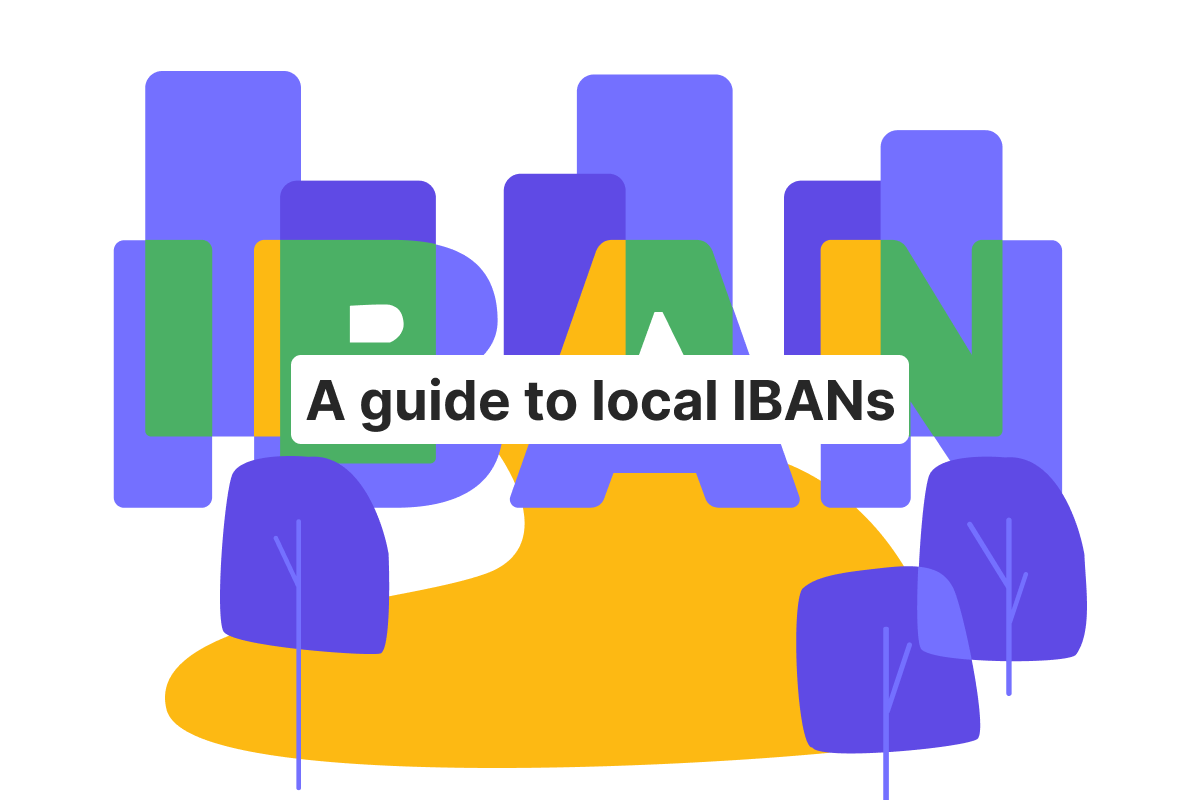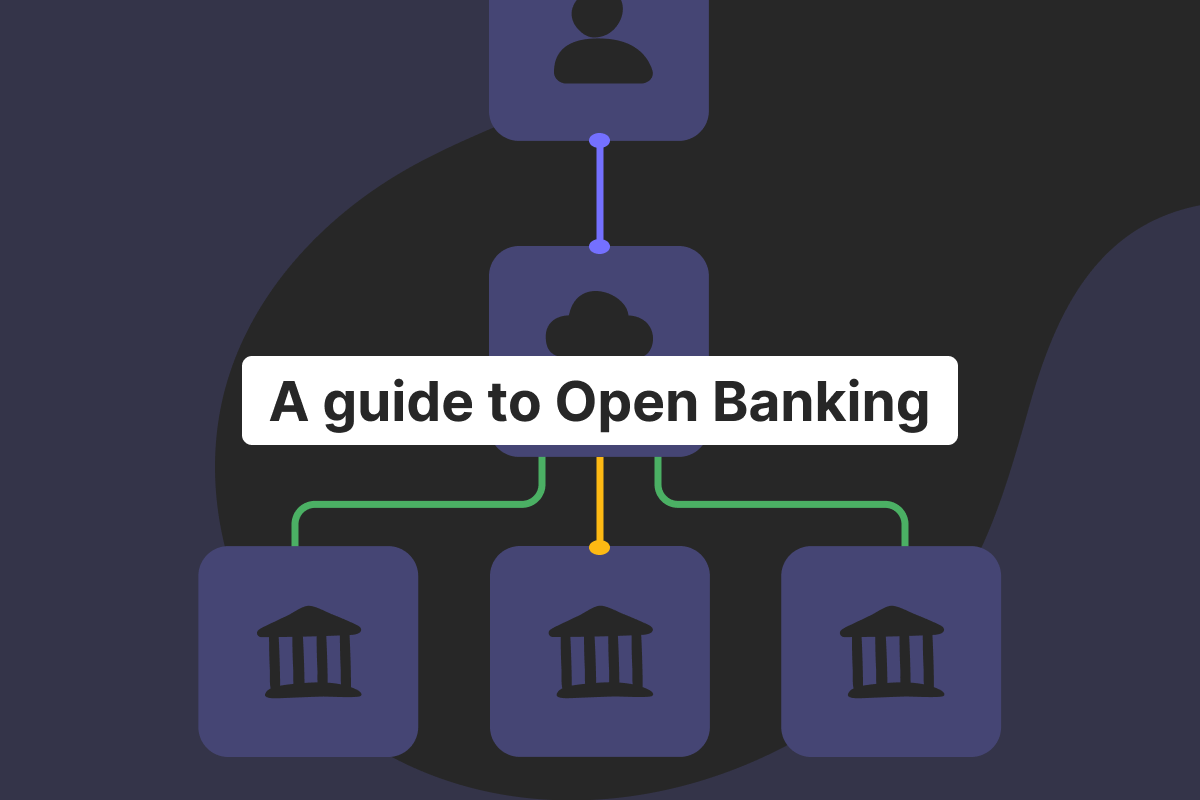Local IBANs help your business get paid like a local, even when you operate across borders. Instead of relying on one universal account setup, you receive a country-specific account number that customers recognize and trust. For many buyers, paying into a domestic bank account feels faster and more familiar than sending money abroad. This matters when you work with partners, marketplaces, or clients who want simple checkout and clear payment details.
Local IBANs also make international payments easier to track and reconcile, because transfers follow standard banking formats used by financial institutions. In short, they reduce friction in cross-border payments and support smoother growth in new markets.
What is a local IBAN?
We should establish what a standard International Bank Account Number is. As we mentioned before, a bank account number IBAN consists of up to 34 letters and numbers. By the way, not every country supports IBAN – you should always check the full official list of IBAN-supporting countries.
Let’s take, for example, France and its country-specific account details format. France is a good example of using IBAN because it has specific international borders, such as its overseas territories.
In France, IBANs comprise only 27 digits, including the country code, check digits, bank code, bank branch code, national code, and bank account number. It would be something like this:
FR1420041010050500013M02606
Germany has an even cleaner IBAN design, only 22 digits: DE89 3704 0044 0532 0130 00 – here you can see an IBAN checksum, bank code, and account number, no branch codes, no letters beyond the country code
Banks and financial institutions, in order to proceed with money transactions from their clients, must see the recipient’s country code, check digits, a bank code that identifies the respective bank, a branch code where applicable, and the basic bank account number, which basically stands for what IBANs stand for.
All of these elements together form a unique identifier for a specific bank account within a specific financial institution.
When an IBAN is described as “local,” it means that the bank account is registered in the same country as your customer, client, or business partner. It has a big impact on how payments are processed.
Effectively, this means a transaction through a local IBAN number feels no different than sending money to any other domestic bank account – they do not face additional bank charges, and what is most important, they are allowed to use local payment systems without triggering SWIFT (The Society for Worldwide Interbank Financial Telecommunication) or SEPA fees and possible currency conversion at a bigger exchange rate plus longer processing times.
This distinction between local and foreign accounts, despite using the same unique code and account number simultaneously, is what makes the local IBAN feature so valuable for businesses and very handy for many banks in any country.
Local IBAN vs international IBAN
Let’s take a look at a side-by-side comparison of local and traditional IBAN number features.
Feature | Local IBAN | Traditional IBAN |
Currencies available | Issued with the country’s own currency and, depending on the provider, may also support multi-currency accounts. | Depends on the issuing bank; many accounts also offer multi-currency options, but foreign currency payments may involve conversion. |
Settlement time | Faster for domestic payments and often for regional schemes (e.g., SEPA Credit Transfer next day or SEPA Instant in seconds). | May have similar speeds within SEPA, but outside the region or currency zone, settlement often requires SWIFT and can take 1–3 business days. |
Bank account location | IBAN’s country code matches the payer’s country, giving the appearance of a local account. | IBAN’s country code reflects the country where the account is actually held, which may be different from the payer’s country. |
Compliance and regulatory aspects | Must comply with the regulations of the country where the account is held; local IBAN format can simplify acceptance under domestic clearing rules. | Must comply with the regulations of the account-holding country, even if the payer is based elsewhere. |
Cost savings on fees | Can reduce FX and cross-border processing costs when used for payments in the matching currency via local payment rails. | Within SEPA, euro transfers are usually priced the same as domestic by law; outside SEPA or in other currencies, FX and cross-border fees are more likely. |
Why businesses use local IBANs
As we have already established, a local IBAN directly impacts payment processing – some banks, financial institutions, and payment providers are more likely to process a client’s payment successfully if the IBAN is recognized as local.
The reason for this is simple: they don’t need to consider any SWIFT codes or SEPA requirements for international transfers, or any country-specific fees or taxes. With a local IBAN, it’s straightforward.
It also works on the opposite side – having a local IBAN may reduce the chance of triggering certain cross-border reporting rules or correspondent bank fees.
For example, let’s take SEPA transactions – in the EU, they often arrive the same day. For a non-EU country, it may take slightly longer, and if you use SWIFT codes to make transfers, it can take up to several days.
IBANs enable businesses to be as native to a particular country in Europe as they want, and, on the other hand, a customer would feel much more confident if they saw an international bank account number rather than an unknown domestic one.
In France, Germany, and the rest of the EU, IBANs are mandatory for euro transactions; in the United Kingdom, however, they are only recommended.
Local IBANs for SEPA payments
An account that provides local IBANs in SEPA countries makes international payments for customers and business domestic-like – it literally processes euro payments under the same conditions as local market participants.
The key benefits include:
Euro payments. Send or receive money, accept payments, or make payments across different countries in Europe using the euro under the same rules.
SEPA region. Full coverage across the various countries in Europe under a single regulatory and operational framework. Makes both domestic and cross-border payments feel the same.
Fast settlement. Thanks to accelerated processing times, money is settled quickly.
Direct account-to-account payments. Payments are executed directly between banks, reducing reliance on intermediaries and increasing transparency and control.
SEPA is a combination of technical infrastructure and unified banking standards designed to support Europe’s path toward financial integration. International basic bank account number (IBANs) and their local version of bank code are an integral part of this ecosystem, enabling fully compliant euro payments across the European banking system.
Benefits of local IBANs for online and international businesses
The first and most obvious benefit is improved payment processing, resulting in a positive customer experience.
By offering a local IBAN number, you remove the complexity and cost for clients from any country of the over 80 IBAN members.
You also lower your own expenses by avoiding unnecessary foreign exchange charges and high transaction fees.
From an operational perspective, a local international bank account number facilitates easier reconciliation and accounting. Payments arrive in the correct currency, with account details that match your invoices, which reduces errors in record-keeping. It also enables more efficient management of multi-currency accounts, allowing for the handling of payments from different countries through a single, streamlined banking setup.
Another major advantage is access to a local payment network. Instead of relying solely on SWIFT for international money transfers, you can tap into faster, cheaper systems like SEPA in Europe or BACS in the UK.
By the way, despite the United Kingdom no longer being an EU member country, it is part of the IBAN and SEPA systems, but it also has its own bank sort code. The sort code is primarily used in the UK and Ireland. It’s a 6-digit code (something like 12-34-56). It is effectively a bank identifier code plus a branch code where the bank account is held.
It works together with your account number to route payments domestically within the UK.
These local networks are designed for quick settlement and minimal cost, giving you a competitive edge in managing your transactions.
How to open a local IBAN account
Opening a local IBAN account is straightforward and can be completed entirely online with the right provider. Follow these steps to get started:
Select an EMI or provider – You can choose between a licensed electronic money institution or financial service provider that offers local IBAN accounts in your target region. Take note: EMIs (Wise, Revolut, Genome) are fully digital, while traditional financial service providers (mostly banks) may not be, or have a more limited range of online services.
Complete KYC/AML onboarding – Submit required identification documents and comply with anti-money laundering checks to verify your identity.
Choose currency or region – Decide on the currency (e.g., euro) and the SEPA country where your IBAN will be issued.
Receive your dedicated IBAN – Once approved, you will be assigned a unique IBAN bank code and account number, ready for international transactions.
Start receiving payments – Begin accepting payments directly to your new account.
Note that inside Genome, you receive a EUR IBAN account automatically after your personal wallet or business wallet gets approved!
Why choose Genome for an IBAN account
Genome provides businesses (and personal users) with a dedicated Euro IBAN number that can be opened entirely online – no bank visits or lengthy paperwork required. As an electronic money institution licensed and supervised by the Bank of Lithuania, Genome ensures regulatory compliance and robust security.
We offer EUR IBANs, but they are universal when it comes to their usage for SEPA payments!
Once you open a wallet inside Genome, you get a dedicated EUR IBAN account automatically – perfect for sending and receiving SEPA Instant and Credit Transfers.
One standout benefit is Genome’s multi-currency capability. In addition to EUR, you can add and manage accounts in various currencies – USD, GBP, PLN, CHF, JPY, CAD, CZK, HUF, SEK, AUD, and DKK – with seamless currency transfers from one account to another. Store funds and unlock international money transfers for your company.
Genome offers both virtual and physical Visa debit cards for personal and business use, both of which are contactless (Google Pay, Apple Pay, Garmin Pay-compatible).
Virtual cards can be issued instantly through your Genome dashboard and are perfect for online purchases, subscriptions, advertising platforms, and secure money transactions.
Physical cards are ideal for everyday spending, travel, and in-store purchases. They work worldwide wherever Visa is accepted.
Need an International Bank Account Number for your business or personal needs? Look no further – start the onboarding at Genome online with minimal documents required.






